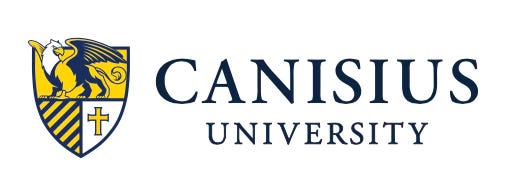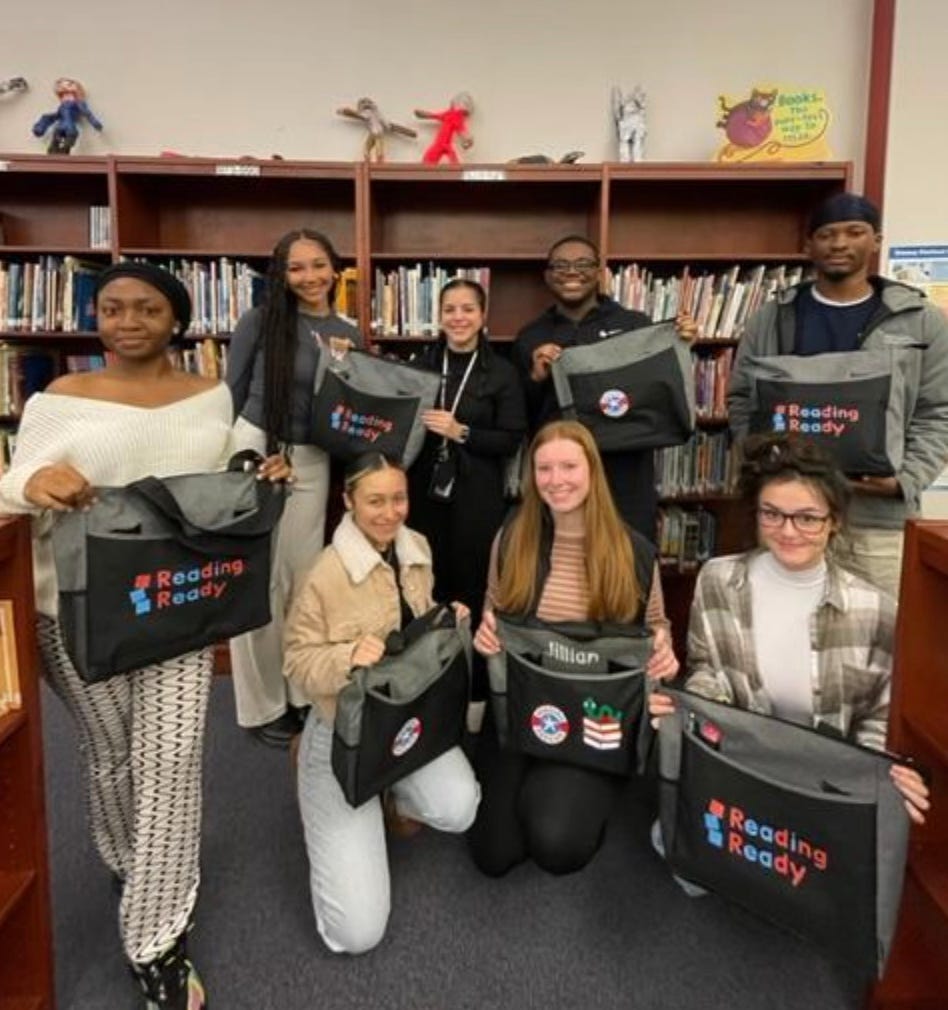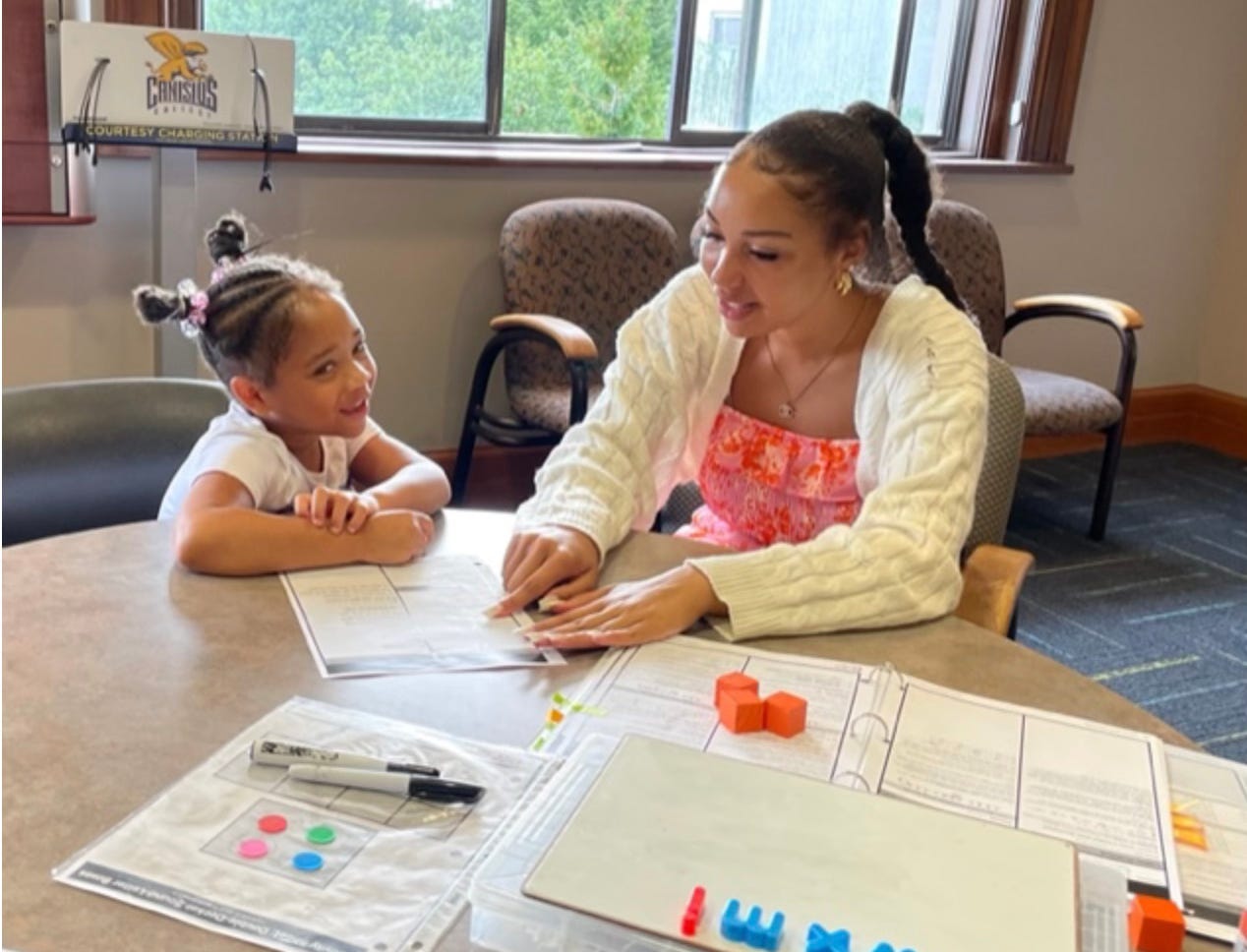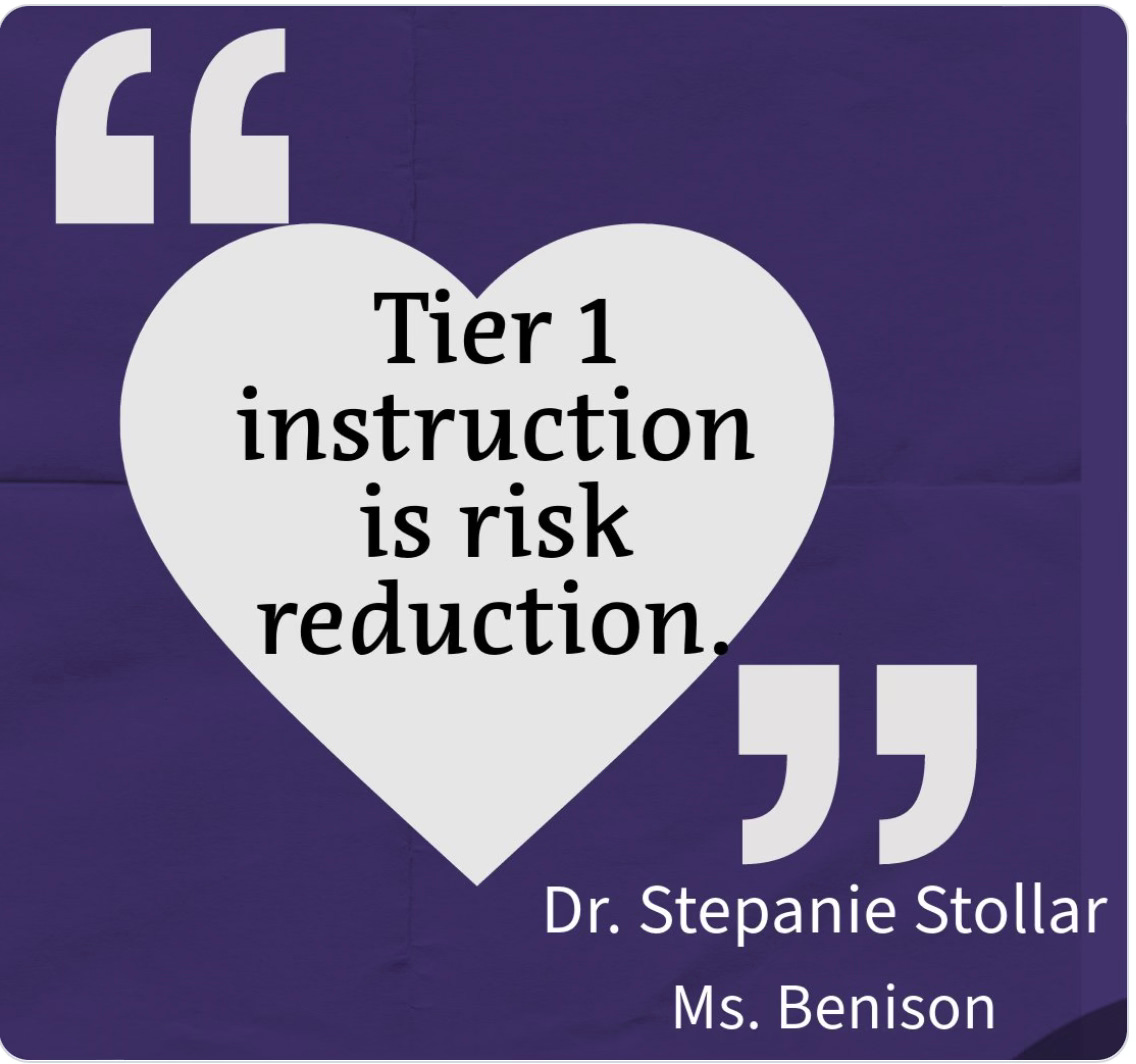Canisius University: A Look at High-Impact Tutoring in Buffalo
Part 1 of a series examining high-impact tutoring efforts in Western New York
High-impact tutoring has been getting a lot attention lately. People want to know about efforts in Western New York, so we decided to do a series of interviews with local universities and non-profits, who are doing great work that deserve to be highlighted.
What Exactly is High-Impact Tutoring (HIT)?
In a good article from Ed Week, Susanna Loeb, the founder and executive director of the National Student Support Accelerator, defines HIT - also known as high dosage tutoring - as “one-on-one situations or very small groups meeting at least 30 minutes, three or more times a week.” So high-impact tutoring needs to happen often, during the school day (although summer and after-school learning can be successful with the right frequency & duration) , preferably with the same tutor, and with high quality instructional materials.
Other places, including the Colorado Department of Education, the D.C. Office of the State Superintendent of Education, and Texas Education Agency, go a step further in defining high-impact tutoring by specifying that it be “research-based” as well as “data-driven.”
With this in mind, we want to spotlight the work of Canisius University.
Spear-headed by Joyce Fanning, Co-Director of the Canisius University Teacher Residency, and Elizabeth Turner, Director of Educational Partnerships, Canisius is using students in their educator prep program (EPP) to offer high-impact tutoring using the Reading Ready program to Buffalo Public School students, by partnering with schools in their neighborhood.
This is significant because Reading Ready, developed by Dr. Katie Pace Miles “is an evidence-based, high-dosage program in which students receive three to five 20-25 minute lessons per week for anywhere from 30-60 lessons.” In addition and most importantly, there is significant research to show that Reading Ready works for students. The bonus? Student-teachers “are able to build their skills, knowledge, and motivation to support emerging readers through hands-on experience.”
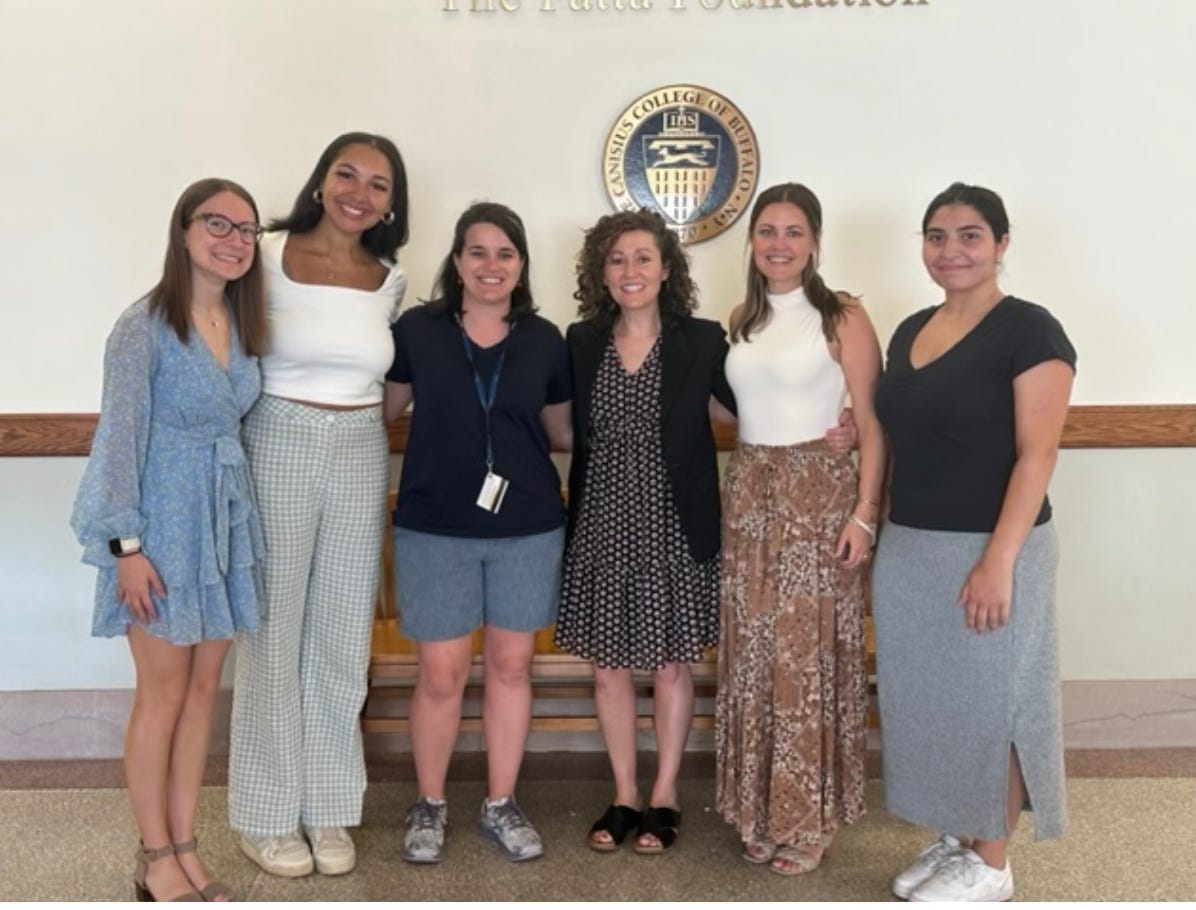
Many thanks to Joyce Fanning and Elizabeth Turner, who were kind enough to sit down with me and answer some questions about the important work they are doing - both to get students caught up to grade-level reading proficiency and to train student-teachers in evidence-based instruction:
Tell us about the high-impact tutoring work that Canisius is doing. How & when did you come to start using it?
We wanted to create field work experiences that were mutually beneficial to both our Canisius students and to the community. At first we were targeting students directly impacted by Covid-19 virtual learning in their kindergarten year. These students were entering 2nd grade and below reading level. Uniquely, the first cohort of tutors were also impacted by virtual learning as they were graduating seniors while these students were kindergarteners- these two groups have connected tremendously because they shared a significant and challenging time which led to learning loss and isolation. The tutors not only created a positive reading experience but they knew first hand that the personal connection and relationship would be especially important.
Reading Ready was successful in two ways from the start- building confidence in the students and building strong word reading skills that were perhaps lacking due to limited early literacy exposure and skills in their kindergarten year.
Is the tutoring during the school-year or summer? How many kids do you reach and how many tutors do you have?
We have tutored in three ways: tutoring during the school year through field work that connects to coursework; paid tutoring opportunities during the school day or afterschool; tutoring during summer camp.
So far, we have tutored 132 students through embedded course field work and paid tutoring opportunities. That is about 1,500 sessions so far, which we are very proud of.
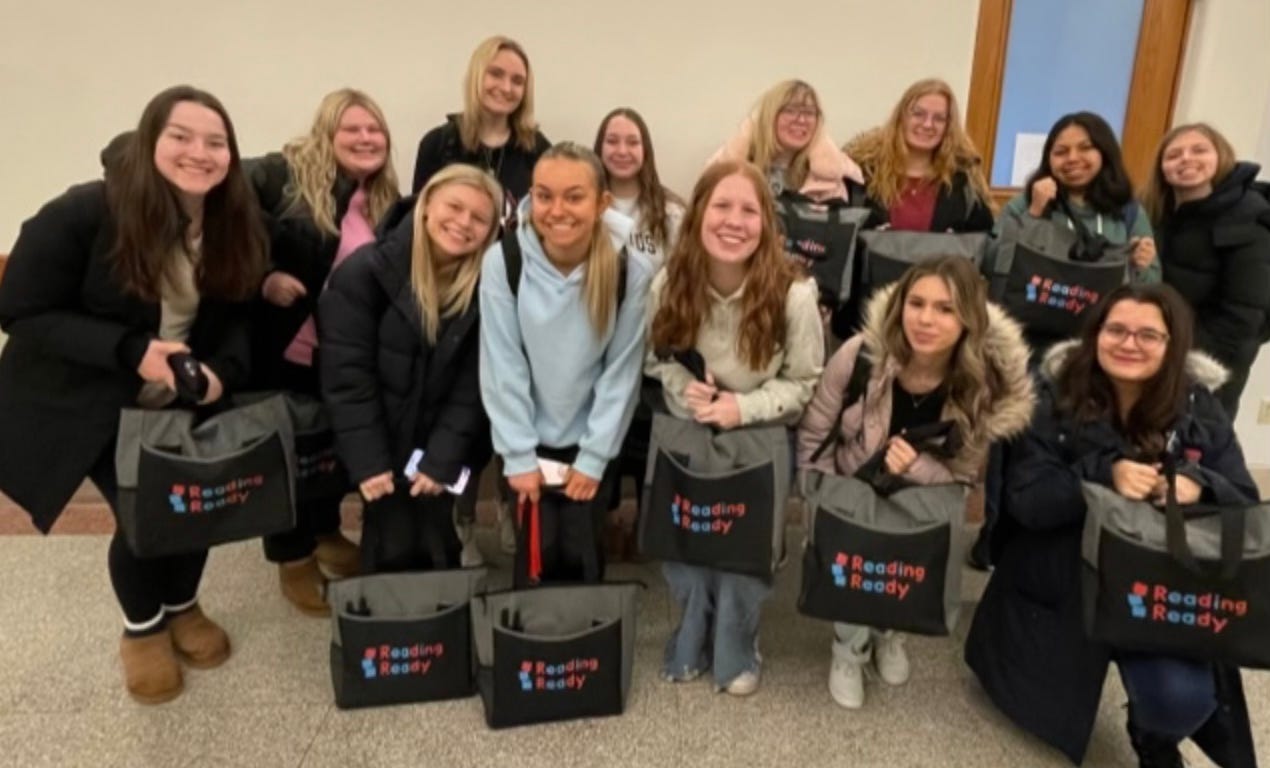
What kind of results are you seeing? Are you pleased?
The pre and post assessment data shows that Reading Ready has improved early literacy skills. The consistent 3 days a week truly makes a difference in developing word reading skills. The scope, sequence, and direct instruction has benefited students’ overall phonemic awareness skills, letter sounds acquisition, word reading, and reading fluency. We are very pleased with student results and also with the awareness of early literacy we are able to share with our Canisius students.
Have you received feedback from the schools / parents / students themselves?
We have learned along the way and continue to strengthen our tutoring program. Students enjoy one-on-one time with tutors (a rare commodity for a child!) and eagerly attend sessions. Teachers enjoy the consistency of tutoring three days a week and students are able to get to know their tutor, so we have noticed strong tutor-student relationships. The sessions have a consistent format with quick, engaging, and interactive lessons. School leaders are appreciative of the organized, data-driven and effective outside support we are able to bring to their students.
What do you want to see for the future of high-impact tutoring in Buffalo and New York State? What do you think will make the most impact in helping kids?
We hope to see more high impact tutoring in schools and afterschool programs. Almost any individual can become a trained tutor; you do not need to be a teacher. As a society, we need to find more creative ways to incorporate literacy tutoring on a larger scale. At Canisius, we hope to continue this important work. If we can partner with other higher ed institutions, we could provide Buffalo with a larger network of tutors.
Canisius would like to have a stronger presence in the afterschool space in some of our surrounding community schools close to campus. This space could allow more tutors because there would be less course time conflict in the after school school hours.
What’s Happening Nationally & in NYS Legislature?
As you may know, President Biden called for “providing high-dosage tutoring” in his State of the Union address, and said that tutoring programs should: “(1) provide at least three 30-minute sessions per week; (2) occur in small groups (e.g., 1-4 students); (3) occur during the school day, which helps support consistent participation; (4) use well-trained tutors (e.g., paraprofessionals, teaching candidates, retired teachers, AmeriCorps members, teachers, and others); and (5) aligned with an evidence-based, structured curriculum.”
Biden also calls for “increasing summer learning and extended or afterschool learning time.”
While we agree that high-dosage tutoring, summer learning and afterschool learning are important in getting students reading at or above grade-level, it’s critical to state that the best way to improve student reading outcomes is to fix general classroom instruction, also known at Tier 1 instruction.
As Ms. Benison on Twitter/X says: “If your general education program is not reducing the number of kids referred to Tier 2 and Tier 3, you have a Tier 1 problem. You will not be able to intervene your way out of it.”
In the New York State legislature, there is Assembly Bill A7788, which “establishes a pilot program to provide high impact tutoring.” This would be piloted as a competitive grant program for districts to apply to. More to come on this.
Thanks again to Joyce and Elizabeth at Canisius University for taking the time to be interviewed and for their transparency in how they’re using high-impact tutoring to help students read proficiently. We applaud their efforts and look forward to sharing what other organizations and institutes of higher education are doing in future newsletters.
Do you know of a place - or are you part of a program implementing high-impact tutoring - in our region? I’d love to hear about it. Please reach out to me at tarja@wnyeducationalliance.org.
Happy Summer!
Tarja




